
Summit Schedule
Dec. 2, 11:00 – 11:50am ET
Plenary Panel
Aspiring for the Future of Technology in Art Therapy
In this panel, presenters will discuss the three pillars of artificial intelligence, machine learning, generative AI and artificial general intelligence and address how they impact the profession of art therapy. Panelists will discuss how they use AI in their work and strategies for learning about and incorporating new technologies into professional practice.
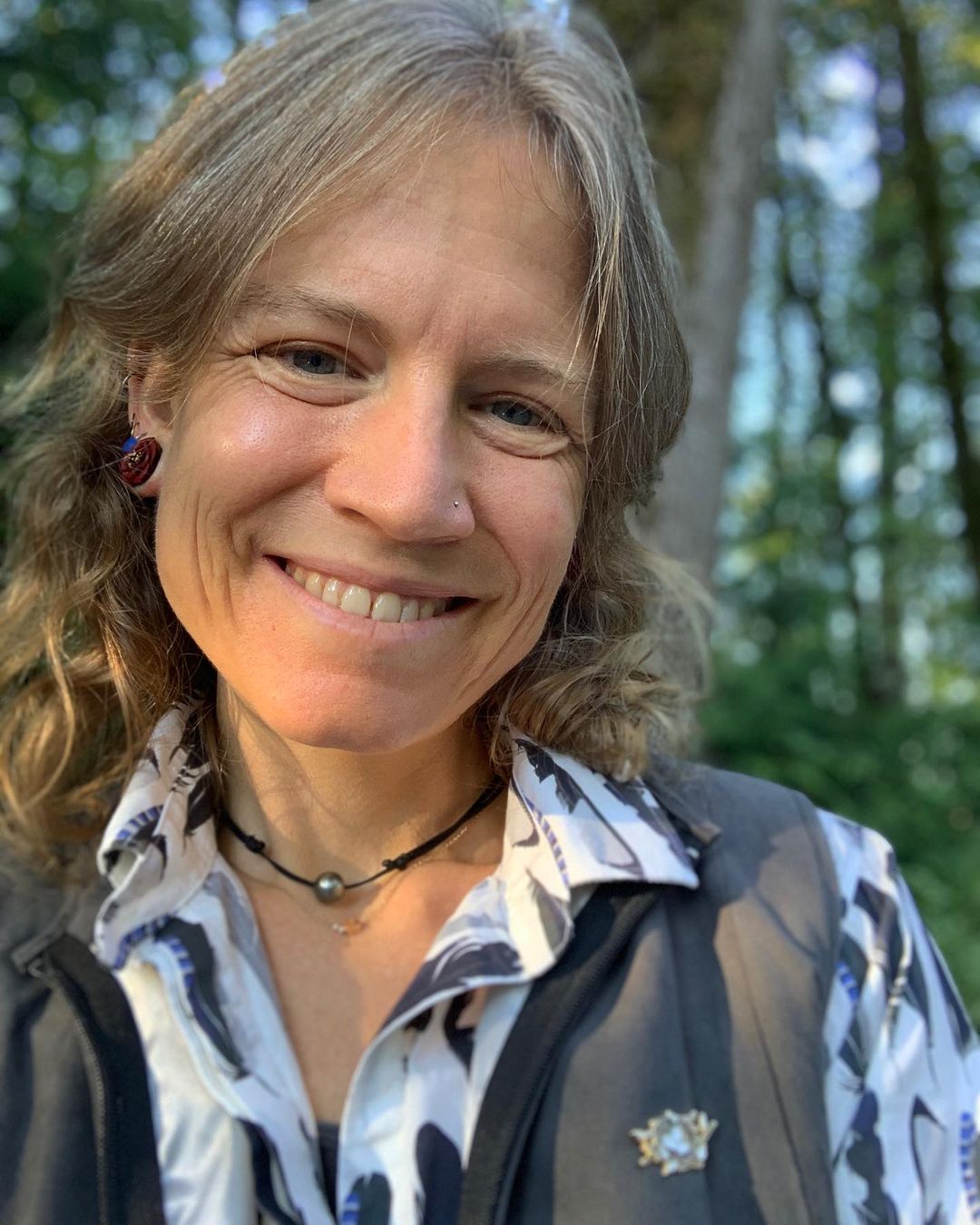
Panelists
Erin Partridge (Moderator)
Ruchi Metha
Nancy Choe
Marie Julie Deschamps
(Bios listed below)
11:55am – 12:45pm ET
Session 1
Generative AI Art, Identities, and Attunement in Art Therapy
Attunement occurs when art therapists and patients share relational space through rhythm engagement on cognitive, emotional and kinesthetic level (Kossak, 2015). Generative AI Art, created through the use of artificial intelligence, is a new form of digital visual art making from text prompts. Applying a qualitative frame, art therapists were interviewed to consider the potential of AI art on attunement practices in clinical context.
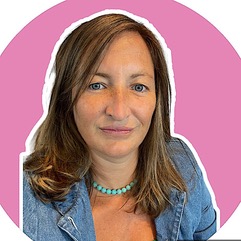
Marie Julie Deschamps (Presenter)
Originally from Europe (France/Germany) but based in Houston (TX, USA), Marie Deschamps (she, her), PhDc, is an art psychotherapist, researcher and artist, with clinical specialty in psycho-oncology and palliative care (UNAM, Mexico). A current doctoral candidate at Lesley University (Cambridge, USA), her research focuses on enhancing self-disclosure of oncological symptoms in collaboration with MD Anderson Cancer Center (TX, USA). A graduate of the MIT-Harvard Medical School innovation in healthcare bootcamp, she has been developing a software to integrate art-based expression in health data monitoring, and collaborates with the SexTech lab at the New School University (NY, USA) on researching the use of AI generative art in fostering therapeutic attunement. For the past two years, she has been teaching future art psychotherapists from Central and South America at the Instituto Mexicano de Psicoterapia de Arte (IMPA). She is a mother to Emilio and Matteo.

Jed Walls (Presenter)
Jedediah Walls (they/them), PhD, is a therapist practicing in a private clinic in Las Cruces, New Mexico, they hold a PhD in Media Psychology from Fielding Graduate University, and a Master’s Degree in Art Therapy and Clinical Mental Health from Edinboro University. In collaboration with the SexTech lab at New School University (NY, USA), they research the use of AI generative art to foster therapeutic attunement. Jedediah’s central passion lies in the seamless integration of media psychology and art therapy, with a particular emphasis on supporting the liberation and self-actualization of queer and neurodivergent individuals. They are actively involved in Media Psychology, a distinct field within the American Psychological Association (APA) under Division 46, dedicated to unraveling the intricate ways in which media and technology impact cognition, culture, and psychology. They contributed to “The Handbook of Art Therapy and Digital Technology” alongside Dr. Cathy Malchiodi, where they examined the application of virtual reality in therapy.
12:50 – 1:40pm ET
Session 2
Transcending Tech Media for Art Therapy: Scanography
Scanography, also spelled Scannography or called Scanner Art and Scanner Photography, are the various names for the processes to create a digital image using a flatbed scanner, and in ways the manufacturers had not originally planned.

Natalie Carlton (Presenter)
Dr. Natalie Carlton, ATR-BC, LPCC, has multi-systemic art therapy and counseling experiences from urban addiction/recovery and psychiatric in-patient settings to community-based, studio art therapy services for rural youth, adults, and families. As a board-certified art therapist and licensed counselor in New Mexico for 20 years, she worked with children, youth and family systems, people with developmental disabilities and chronic psychiatric illnesses, and within trauma and addiction recovery models. Justice, systems, feminism, and queer theories have been grounding orientations for the therapy support and access Carlton has provided and are her base for her current graduate teaching and leadership.
1:45 – 2:40pm ET
Session 3
Creating the Improbable: Using Expressive Technologies like MidJourney
This session will provide an overview of the creative and therapeutic attributes of using Artificial intelligence applications like Midjourney. Tips for using AI as well as the unique creative qualities of this medium will be shared.
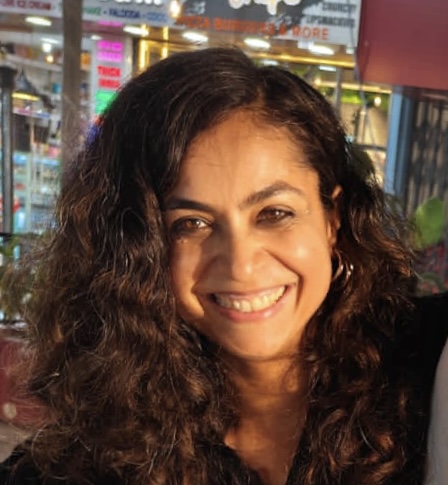
Ruchi Mehta (Presenter)
For her day job, Ruchi Mehta heads Product Design for India’s largest online ticketing portal. In her personal capacity, she is a single mother, who likes to dabble in different mediums to give voice to her creative side. From weaving to shibori, painting to sketching, lino cuts to ceramics, she has a deep interest in physical materials. More recently though, her explorations have led her to use software like procreate and figma to produce artwork. She recalls a solitary childhood, painfully shy and reticent, a little girl who used art to deal with the overwhelming world around her. As an adult, whenever life threw her some curveballs, she used it to catalyse more creative work. With the advent of generative art using AI, she has found a new way to express her inner life.
Lunch Break, 2:40 – 3:10pm ET
3:10 – 4:00pm ET
Session 4
Art Therapy in the Global AI Context: Ethical Considerations
This presentation explores the overlay of AI on arts practice. It presents the portions of the UNESCO AI Ethics document relevant to the practice of art therapy.

Erin Partridge (Presenter)
Erin Partridge, PhD, ATR-BC, is board certified, registered art therapist and Head of Inspirement for Ensō Village. She is also a certified forest therapy guide. Her clinical experience includes work in community, pediatric, forensic, and geriatric settings and she is published in the areas of art therapy, elder care, research methods, and technology. Her research interests incorporate the lived experience and focus on participatory, ethnographic, and art-based approaches. Erin’s teaching and lecturing experience includes teaching in the art therapy department, guest lectures in art and counseling programs, mentoring undergraduate and graduate students, workshop facilitation at national and international conferences, and interviews with media about art therapy. She serves the profession of art therapy through work with AATA and the ATCB.
4:05 – 4:55pm ET
Session 5
Creating a Strong Digital Presence Online: Professionally, Ethically, Creatively
This presentation presents key considerations for art therapists to create a strong digital presence professionally, ethically, and creatively. Digital boundaries, the impact of one’s digital footprint, introduction to ethical frameworks and strategies for promoting yourself online that aligns with your passions, values, and aspirations will be examined.
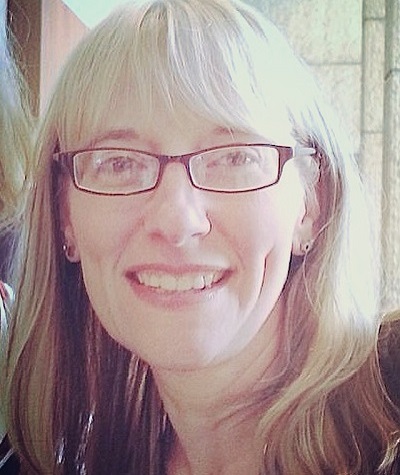
Gretchen Miller (Presenter)
Gretchen M. Miller, MA, ATR-BC, ACTP is a Registered Board Certified Art Therapist practicing in Northeast Ohio, United States. Gretchen is the author of Routledge’s The Art Therapist’s Guide to Social Media, inspired by her love of connecting the art therapy community through technology and online experiences over the last 20+ years. Gretchen is a regional, national, and international speaker on art therapy and technology, workshop facilitator, and adjunct art therapy professor. She currently serves on the Editorial Leadership Board as an Associate Editor and Social Media Coordinator for Art Therapy: Journal of the American Art Therapy Association. Gretchen was also a Guest Editor for the International Journal of Art Therapy’s (IJAT) Special Issue dedicated to Online Art Therapy in 2020.
5:00 – 5:50pm ET
Session 6
AI Imageries in Art Therapy: Exploring the Intersection of Ethics, Expression, and Equity
The field of arts and health stands at a crossroads, torn between embracing generative artificial intelligence (GenAI) applications as an innovative tool for self-expression and preserving traditional human creative practices. This presentation will introduce GenAI image-producing tools within art therapy’s ethical and therapeutic framework, offering preliminary guidelines for their application.
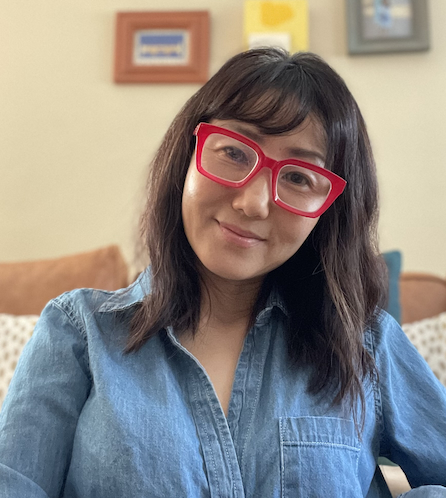
Nancy Choe (Presenter)
Nancy Choe (PhD, LMFT, ATR-BC) has a special interest in employing an interdisciplinary approach to promote holistic and creativity-driven wellness. Her research endeavors in art therapy have centered on digital media and technology, narrative medicine, the expressive therapies continuum (ETC), and post-traumatic creativity. Based in Los Angeles, Nancy maintains a private practice, teaches art therapy graduate courses, and conducts exploratory arts-based research.

Sze-Chin Lee (Presenter)
Sze-Chin Lee (MAAT, AThS, LPC) is an art therapist, art educator and artist. He has worked across diverse art therapy settings, specializing in healthcare consulting for art therapy, and arts and health related programming. Sze-Chin has a keen interest in socially engaged art practices that involve communities in collaborative interactions. He believes that a thriving arts and health ecosystem requires the collaboration of numerous contributors and stakeholders to maximize the arts’ full potential to enhance people’s lives in creative, practical and meaningful ways.
Tickets
Register Today!
Together, let’s explore how technology—from virtual sessions and virtual reality, to AI and wearable tech—is transforming mental health care and the work art therapists do every day.
The event will be held live (not pre-recorded) with dynamic, engaging discussion. Participants may receive up to 7 CE credits.
Join us from anywhere, virtually, on Dec. 2, 2023!

